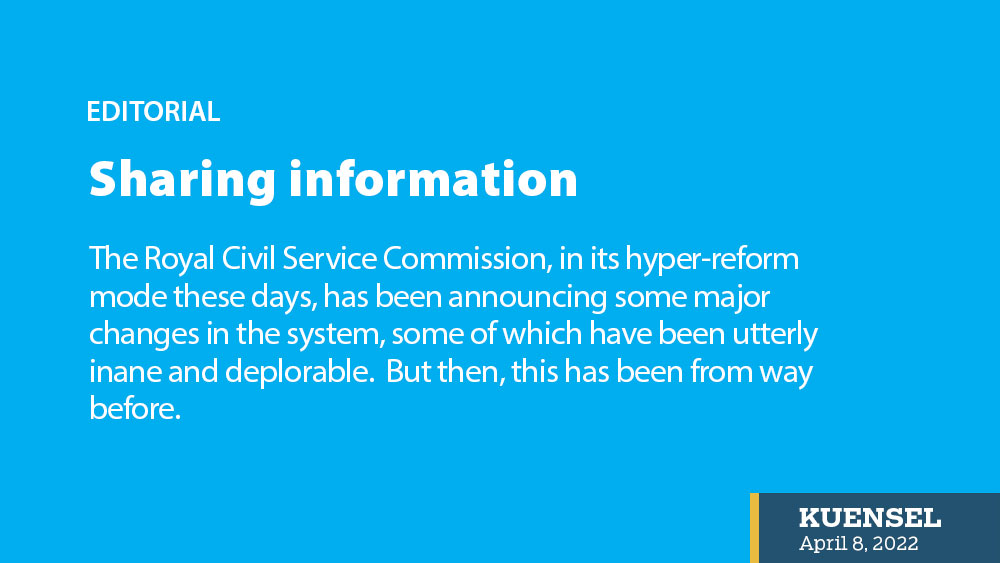The Royal Civil Service Commission, in its hyper-reform mode these days, has been announcing some major changes in the system, some of which have been utterly inane and deplorable. But then, this has been from way before.
Its recent decision, born from a Webinar session on March 31, to seek prior approval from the so-called head of department or ministry to share views and information to the media, is a means to choke the media.
And we are talking about media-friendly governments in the world. International reports do not give us the true picture of how our journalists and reporters have to struggle to get what they need for the benefit of the people.
The problem is that, in Bhutan, media is being systematically corralled, and seen as an enemy. No wonder, people are resorting to social media for information. In a country like ours that does not look at the benefits or ills of social media, repercussions can be serious.
The question that the media have not, and will never understand, is why are people and agencies with information or expertise are becoming increasingly cocooned.
The media is just a bridge between the government and the people, which means that the media must pass the right messages to the people from the government. In the kind of governance we are under, the people have the right to question what is coming to their doorsteps.
If the media cannot talk to relevant officials in an important sector like agriculture, how will, for instance, farmers’ concerns be brought to the notice of decision or policy makers, and how will agencies tend to people’s concerns and needs?
Why are the government agencies feeling so insecure to let out “information” about development?
The media in Bhutan is already fighting a tough battle. It is agriculture we can not talk about today; it could be roads and water tomorrow. These are the basic needs of the Bhutanese people in the towns and villages.
The media is there to link people’s aspirations with that of the government’s progress plans. If the media cannot even ask and dig into government plans and its impact on the grounds, how do we question transparency?
The government will gag the media only when it has something to hide. Enfeebled as the media are, in the country, the media will keep on digging to the depths and unfold the most unsavoury facts that risk gathering dust on the shelves.
What we must know is that shutting up information comes with a reason. The mainstream media will continue to ask: why, and even how? Not letting officials talk to the media or without “approval” is no different than not sharing information that is crucial both to the decision makers and the people.
Information is not for the media, it is for the people.


